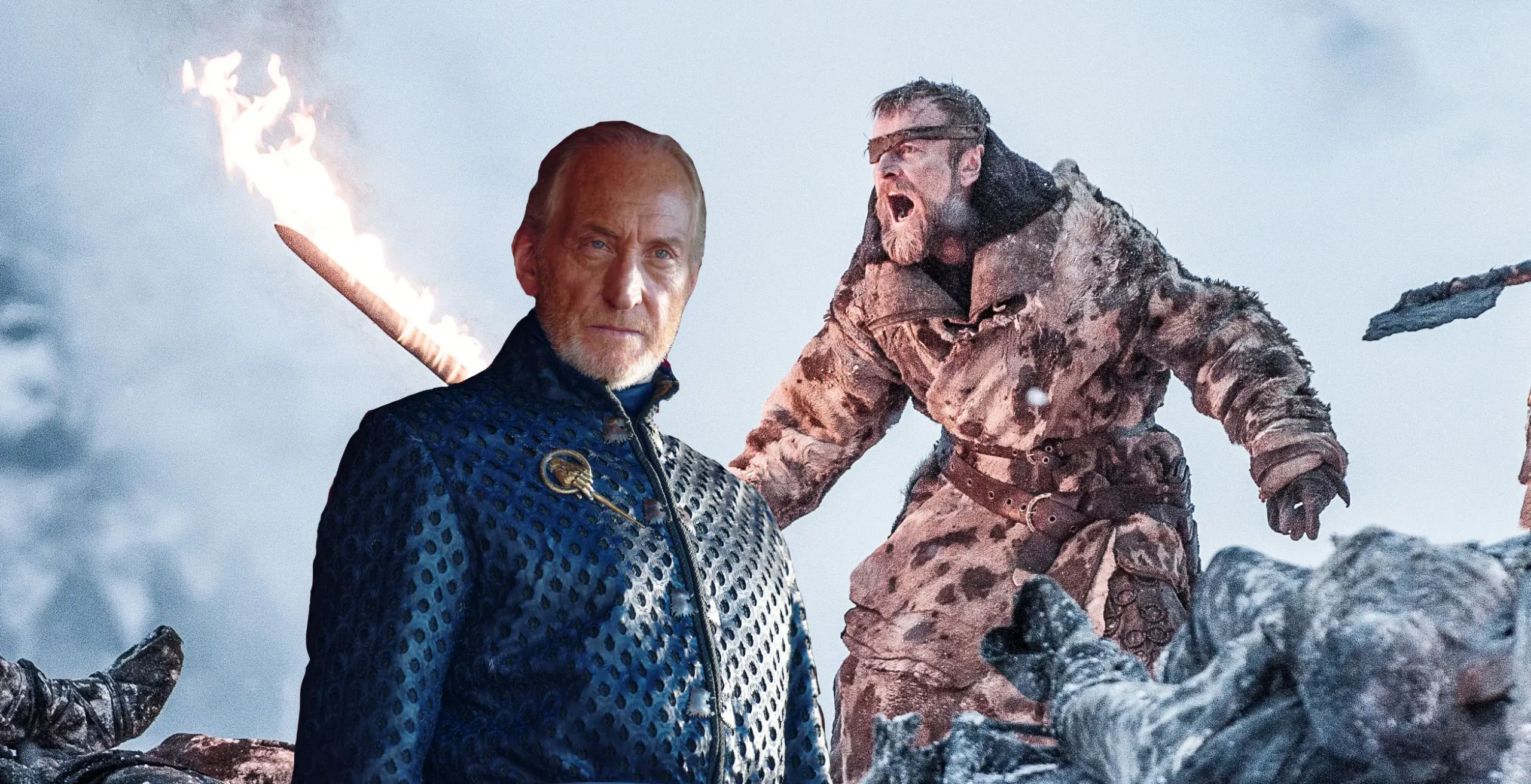GAME OF THRONES. The Biggest ABSURDITIES of the Iconic Show
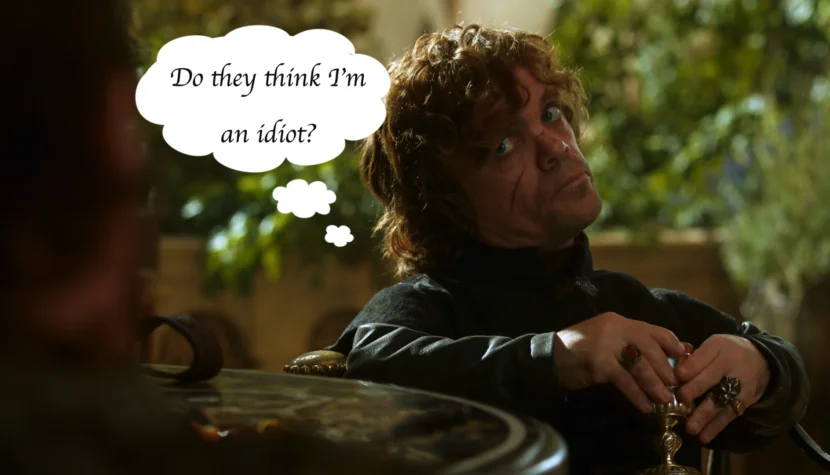
…several years earlier. The turning point, after which Game of Thrones gradually and systematically began losing its edge, came when the source material was exhausted.
Without the foundation of the novels and while awaiting George R. R. Martin‘s next books, the creators of Game of Thrones were forced to complete this incredibly complex puzzle on their own. The results were, well, mixed. Below is a list of minor and major absurdities that began proliferating in HBO’s series around the fifth season, transforming what was once a naturalistic low fantasy into a generic Hollywood spectacle.
Ellaria Sand’s Masterplan: A Pinnacle of Foolishness in the Dorne Plotline
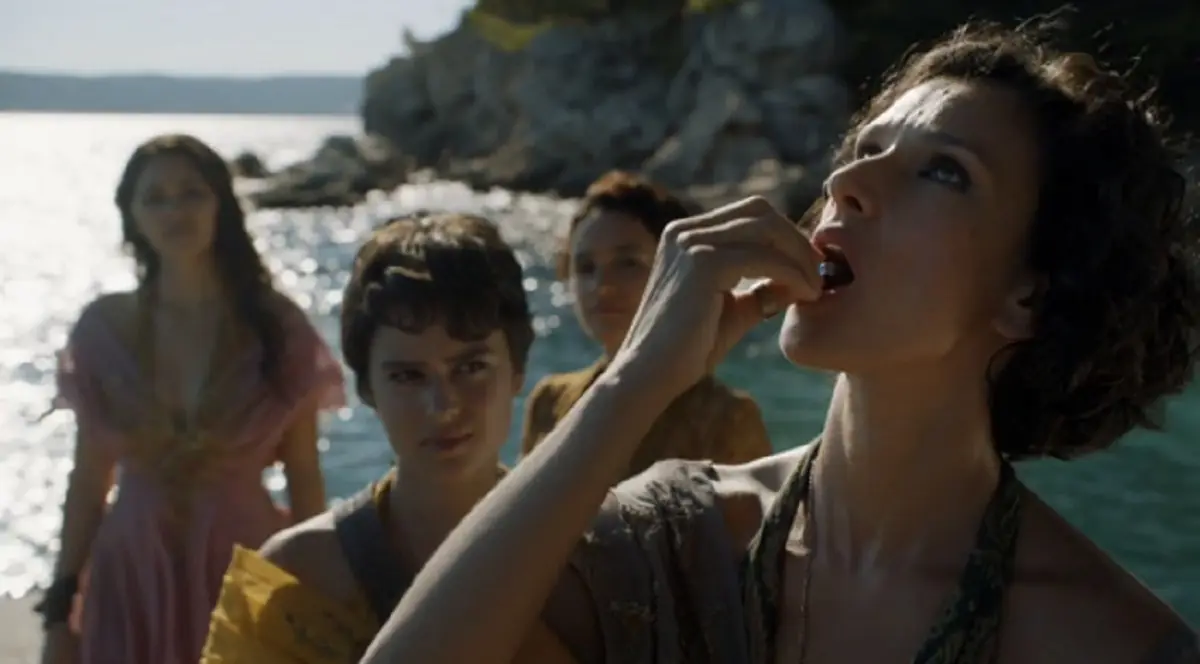
How Best to Avenge a Lover’s Death? The answer is obvious: massacre his entire family and wipe his house off the face of the earth. That’s the brilliant plan concocted by Oberyn’s lover, Ellaria Sand, and his daughters, the Sand Snakes. Along the way, they also murdered the queen of Westeros’ daughter, Myrcella—because why not? Surely, the princess had everything to do with Oberyn’s death in an honorable duel he willingly agreed to take part in. Even more absurd than the political coup in Dorne are its consequences—or rather, the lack thereof. The Dornish people seem to accept the convoluted succession that sees their country ruled by the prince’s brother’s concubine. Meanwhile, Cersei, the bloodthirsty lioness, doesn’t even bother declaring war on Dorne…
But maybe this absurdity isn’t really an absurdity? Maybe Oberyn was just an excuse for these four cold, ruthless women all along? The assumption that people blinded by a lust for power act irrationally is, ironically, perfectly logical.
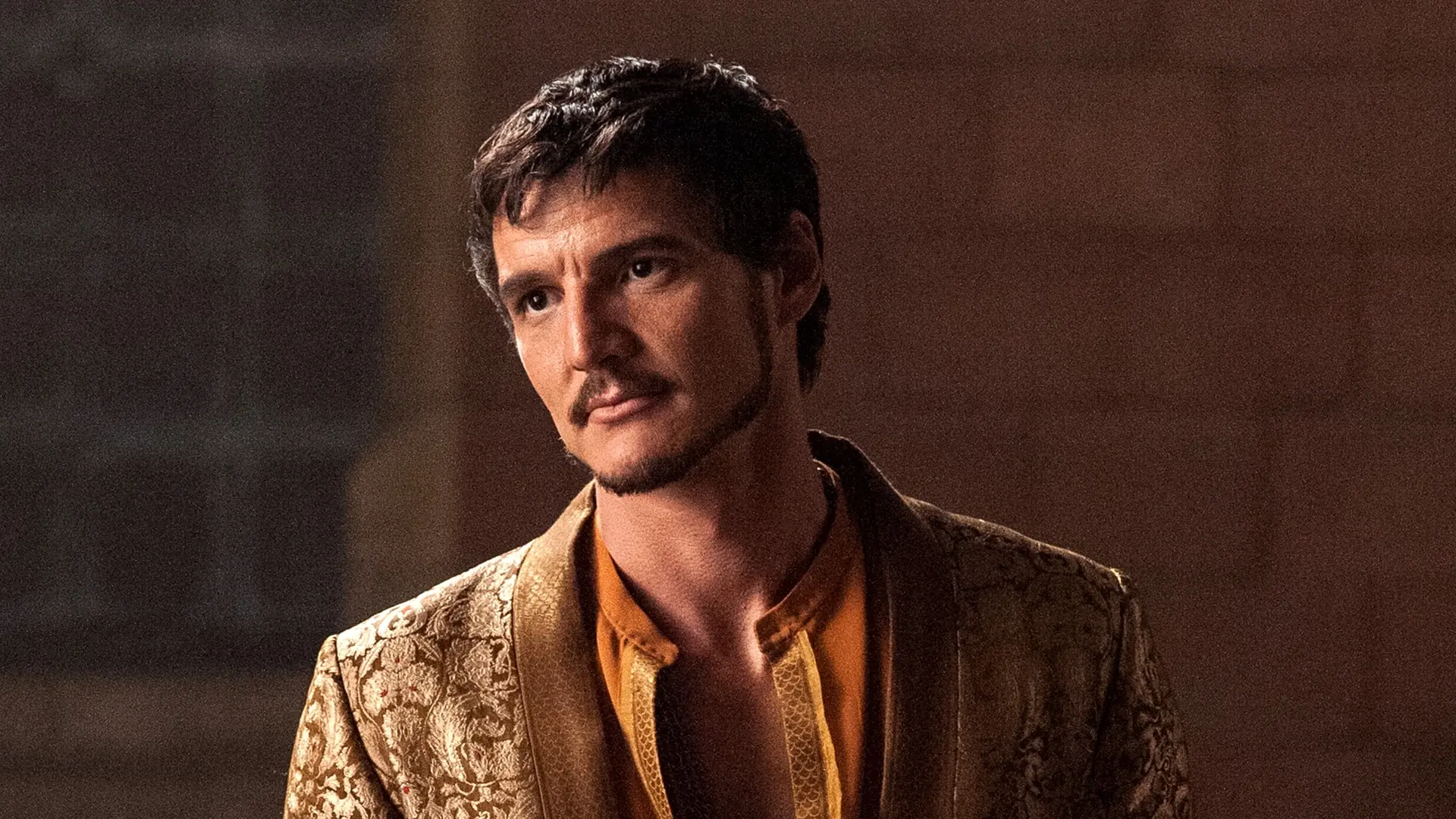
Why Would a Military Genius Like Stannis Commit Mass Suicide?
The mishandling of Stannis’s character is one of my biggest grievances with the show. The ending of Season 5 feels like the writers wanted to get rid of him as quickly as possible—no thought put into his arc, no consistency in his characterization. The man who didn’t flinch at wildfire and led an epic assault on the walls of King’s Landing; the man who was the only one to answer the Lord Commander’s call and whose charge determined the outcome of the Battle of the Wall… now marches on Winterfell with a handful of starving men, in the dead of winter, without horses, and with defeat written all over his face.
His slow-marching troops against the snow-covered landscape looked like sitting ducks for the Boltons, a shooting gallery just waiting to happen. Seriously? A strategist like him couldn’t have come up with a better plan? A skeptic and realist like him would believe that burning his own daughter would ensure victory?
A Dorne-Shaped Birthmark as Evidence
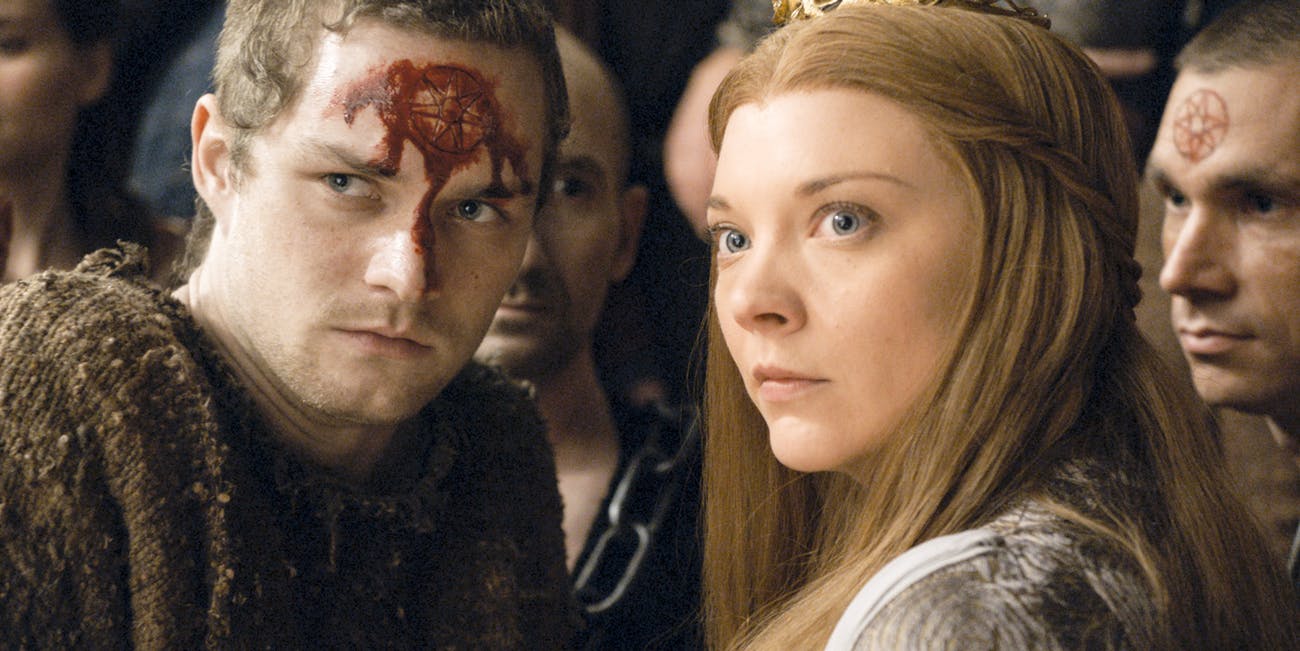
The Great Sparrow is one of the most underrated antagonists of the show: I loved every scene with him. However, the storyline involving the militant faith isn’t without its weaker points. In one of the more important scenes, Margaery’s brother, Loras, is interrogated about his “sins.” His homosexuality is an open secret at court, but the zealots have no solid evidence to convict him. This is provided by Olyvar, who claims to have been Loras’s lover and, as proof of his intimate knowledge of his body, points out that the accused has a mark near his private parts in the shape of Dorne. The problem is that Olyvar is… Loras’s squire. A squire’s duties included helping the knight put on his armor, dressing him, and preparing baths for his master; each squire therefore had thousands of opportunities to see the knight naked—without jumping into bed with him. So, the evidence of Loras’s homosexuality is, well, utterly baseless.
How Did Street-Sweeping Turn Arya into an Assassin?
We were all thrilled when Arya finally reached Braavos and began her training to become a Faceless Man. But for the next two seasons, we mostly watched her begging, sweeping streets, and getting hit with a stick. Let’s face it: Arya was a terrible student, consistently failing the tasks and tests Jaqen H’ghar put before her. So how on earth—by the Many-Faced God!—can we explain her sudden skills after leaving the temple?
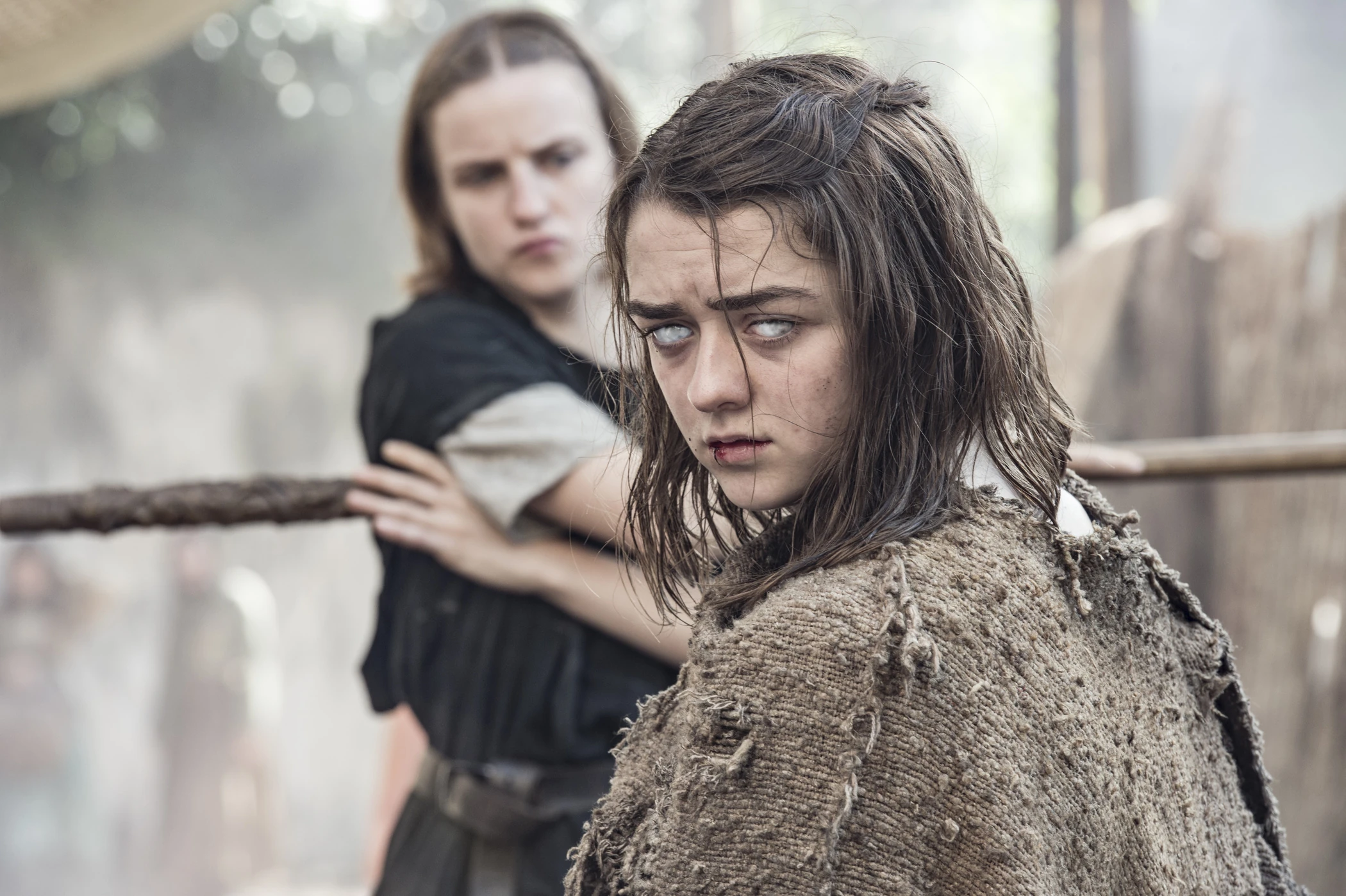
Out of nowhere, Arya can “wear” the face of any person she kills, even though no one ever showed her how to do this during her training. She’s suddenly a master of dagger combat, even though her sword, Needle, was taken from her and she never practiced with blades at the temple. Is it just me, or do Arya’s newfound abilities seem a bit overpowered?
And How Did Arya Survive Falling into a River After Fighting the Waif?
When Arya is sentenced to death by the Faceless Men (for refusing to kill an actress), Waif—her former trainer and tormentor—takes it upon herself to carry out the execution. Disguised as an old woman, Waif ambushes Arya in the street, stabbing her multiple times in the stomach. This alone should have been fatal. But to make matters worse, Arya then plunges into a filthy river—teeming with bacteria and flowing through a medieval-style, foul-smelling city. But that’s just the beginning of the absurdity. Arya is stitched up and bandaged, only to then jump across rooftops, crash into market stalls, engage in a long fight with Waif, and ultimately kill her. And no, Arya gains no advantage from fighting in the dark; after all, Waif, as a Faceless Man, underwent the same training as Arya and also learned to fight without sight.
Unless… the entire sequence happened in Arya’s mind? Maybe the concoction used for swift death isn’t the only hallucinogenic substance employed by the House of Black and White, and Arya was under the influence of some kind of drug. The complete indifference of the people gathered in the street further raises the question: were these events even real?
The Frey Massacre vs. The Logistics Behind It
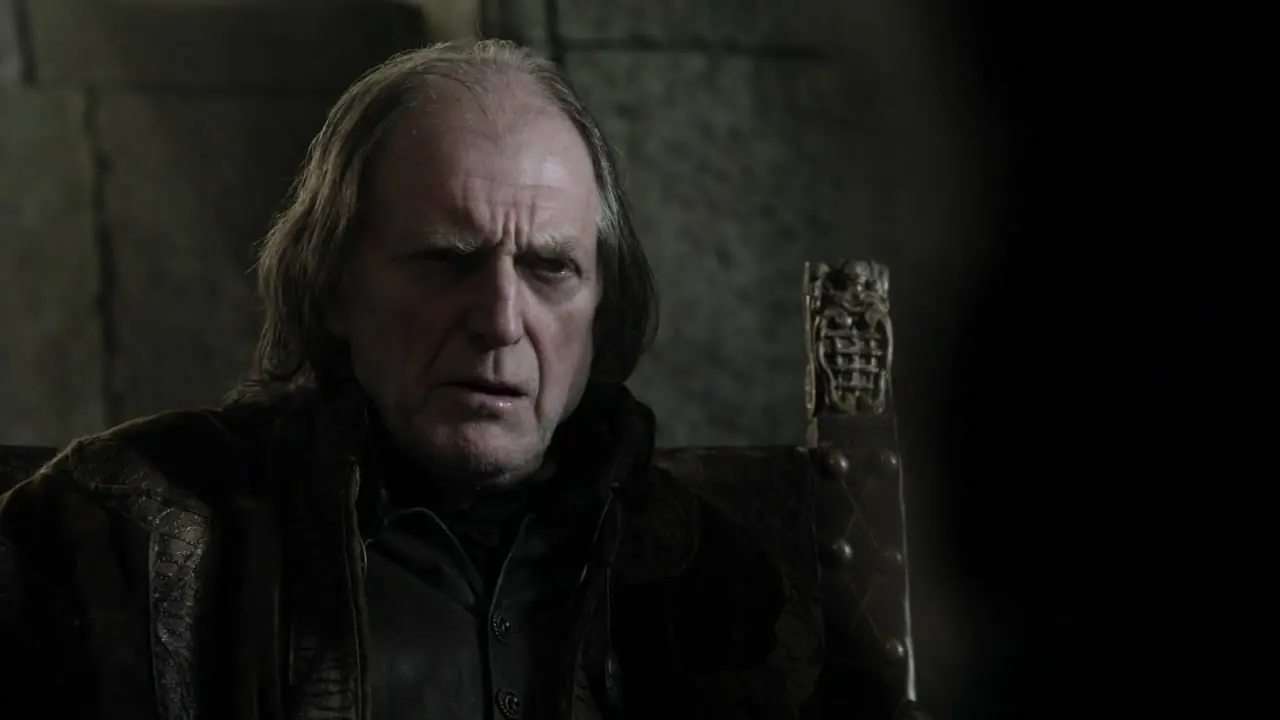
OK – the scene where Arya poisons the entire Frey family is immensely satisfying. But once the initial thrill wears off, you can’t help but wonder: hold on, how was this all carried out? According to Arya, every single living male member of House Frey showed up for the massacre she planned. Even if we assume that she sent out invitations immediately after killing Walder Frey and stealing his face, and even if every single Frey man dropped everything and rode full speed to the Twins upon receiving the summons, it would still take months to organize this event, given the vastness of Westeros. During this long period, Arya would have had to be Walder Frey to avoid suspicion: ruling the Riverlands, holding councils, eating, drinking, sleeping with his wife, peeing, and generally acting like a nasty, lecherous, cranky old man 24/7. The mere thought of it is both hilarious and absurd. Honestly, it sounds like the premise for a spin-off: Arya’s Adventures in Walder Frey’s Body.
Since When Is Jaime the World Champion of Diving in Full Armor?
In a sudden, reckless act of heroism, Jaime charges on horseback at Daenerys’ dragon. Bronn saves him from certain death by shoving him into the… clutches of another certain death—being thrown into the depths of a river (or lake). This would have been a clever escape from the flames, except for one small issue: Jaime is clad head-to-toe in heavy armor and further weighed down by his golden hand.
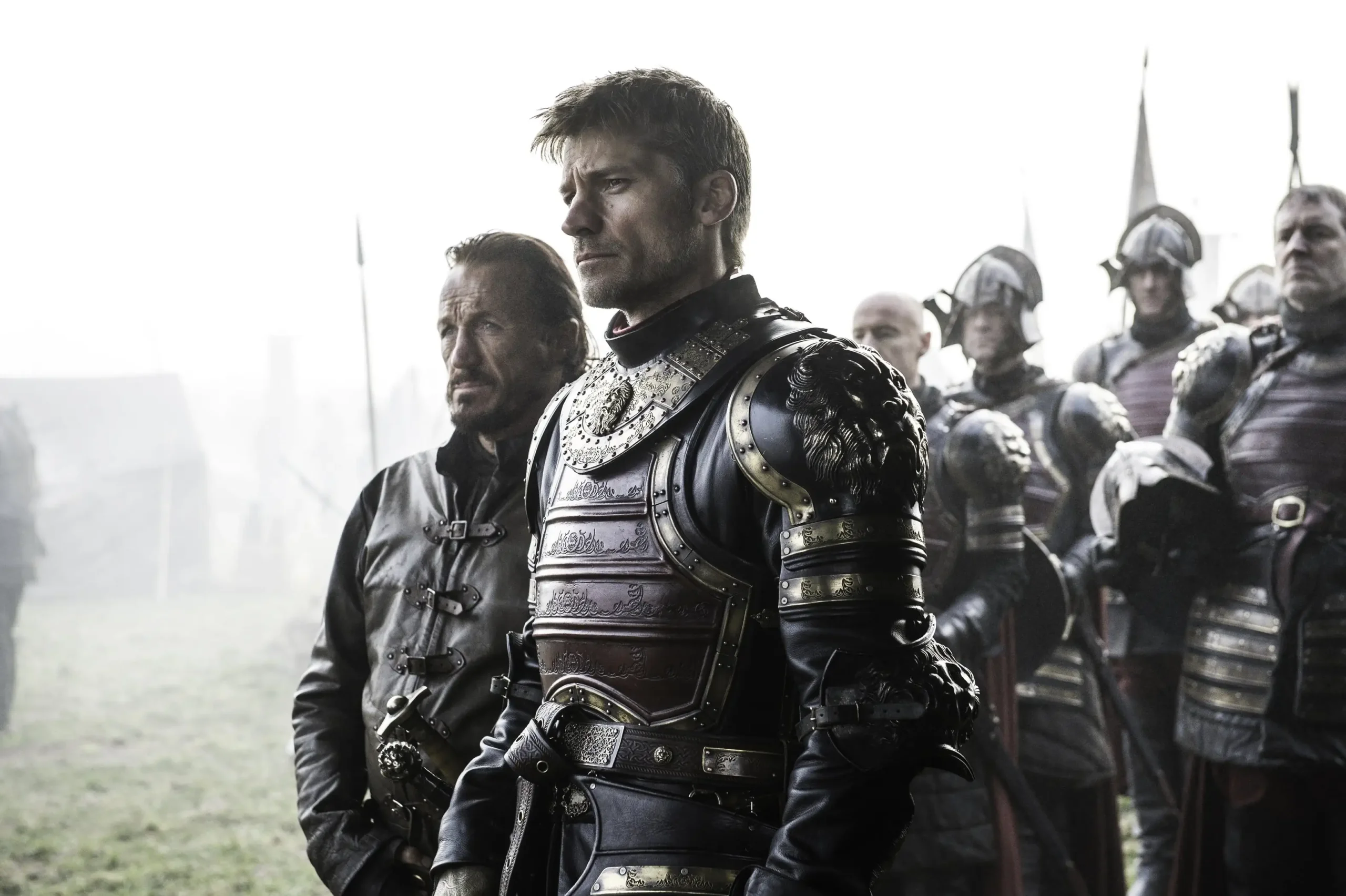
At the end of that episode, we see Jaime sinking to the bottom, as basic logic dictates. But somehow, at the start of the next episode, Jaime and Bronn miraculously resurface. Not only that—they emerge miles away from the battlefield. So, we’re left with two questions: How on earth did Jaime manage to dive and then swim long distances in metal weighing dozens of kilograms? And if he didn’t, does Bronn secretly have superhuman strength and somehow hauled armored Jaime the entire way? We’ll likely never know the truth.
Why Doesn’t Gilly’s Baby Grow?
Does It Have Anything to Do with the Fact That He’s the Product of Incest? Gilly gave birth to little Sam back in Season 3. Since then, Tommen has gone from a chubby kid to the King of Westeros (and committed suicide), Sansa has grown taller than Littlefinger by half a head, Arya has completed her training to become Wolverine, and Bran has transformed into the Three-Eyed Raven. Yet Gilly? She’s still carrying her baby like she did at the start. From the Wall to the Citadel, she’s traveled across Westeros with her child in her arms, and the obviously stunted development of her little one doesn’t seem to bother anyone.
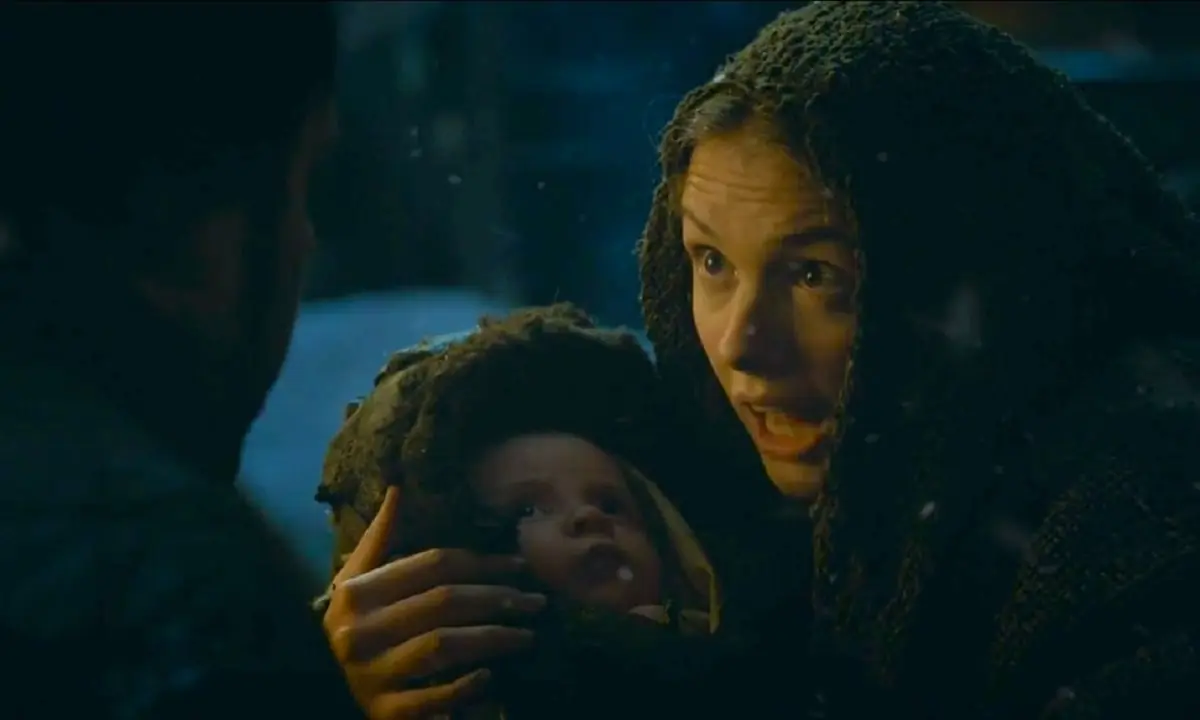
Oh, my mistake—by Season 7, the kid finally started babbling, and by Season 8, he might even have been trying to walk. But then again, everything in Seasons 7 and 8 suddenly started speeding up…
Why Is Everyone Traveling So Much Faster?
Could this have something to do with the return of magic to the world of Ice and Fire? Did both people and messenger ravens receive some kind of turbo boost? Did Littlefinger learn how to fly? Did Euron’s fleet literally grow wings? How they manage to travel such vast distances so quickly across a continent full of enemies is a question the creators never bother to answer, leaving us to simply trust them. This kind of lazy storytelling is not what Game of Thrones trained us to expect. I remember how, in Season 1, it took several episodes for Ned Stark to journey from the distant North to King’s Landing. Or Season 2, where the preparations for the Battle of the Blackwater occupied most of the screen time. These slow burns helped establish and ground the world, making it vast and immersive. But by Season 7, in the span of a single episode, both Casterly Rock and Highgarden—two supposedly formidable strongholds—had fallen.
And then, in Episode 6…
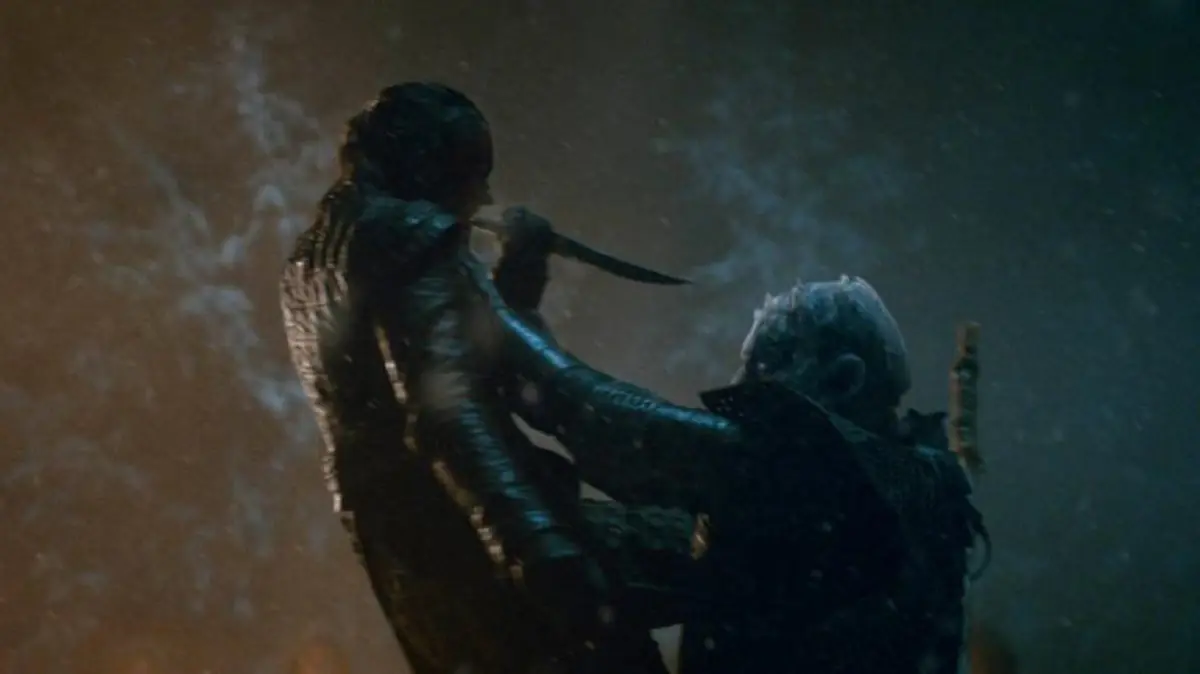
Or rather, the complete lack of strategy. Point one: Do not use the advantage of castle walls; instead, position the majority of your forces outside Winterfell (despite the fact that subsequent scenes clearly show there’s plenty of room inside for everyone). Point two: Hide those incapable of fighting in a crypt full of dead people, because obviously, that’s the safest place when you’re fighting an enemy who raises the dead. Point three: Begin the battle by sending your entire cavalry charging blindly into an unseen enemy shrouded in darkness, thus ensuring their annihilation. Point four: Don’t use your primary advantage—the two flying fire-breathing war machines—because you’re waiting for the Night King, who is so incredibly hard to spot, given that he’s riding such a small and unremarkable creature as an ice dragon… The list could go on and on.
On the other hand, you can hardly blame the protagonists for their lackadaisical approach to defense planning. Every major character had every reason to be confident about their own survival; armed with such thick plot armor, they could have jumped into Chernobyl’s reactor core and walked out unscathed. And of course, in the end, everyone is saved by Arya, whose skills appear to be adjusted according to the whims of the writers. (First, she’s terrified and helpless, hiding in a library from slow-moving zombies; later, she pulls off a ten-meter leap directly into the Night King’s arms—unseen by an entire squadron of White Walkers.). The only real casualties were the Dothraki and Unsullied, tragically used as cannon fodder. Oh, wait—never mind! They magically multiplied again over the course of the next three episodes. In the early seasons of Game of Thrones, there was a real sense that anyone could die. In the final two seasons, killing off a character became almost impossible.
How to Become a King?
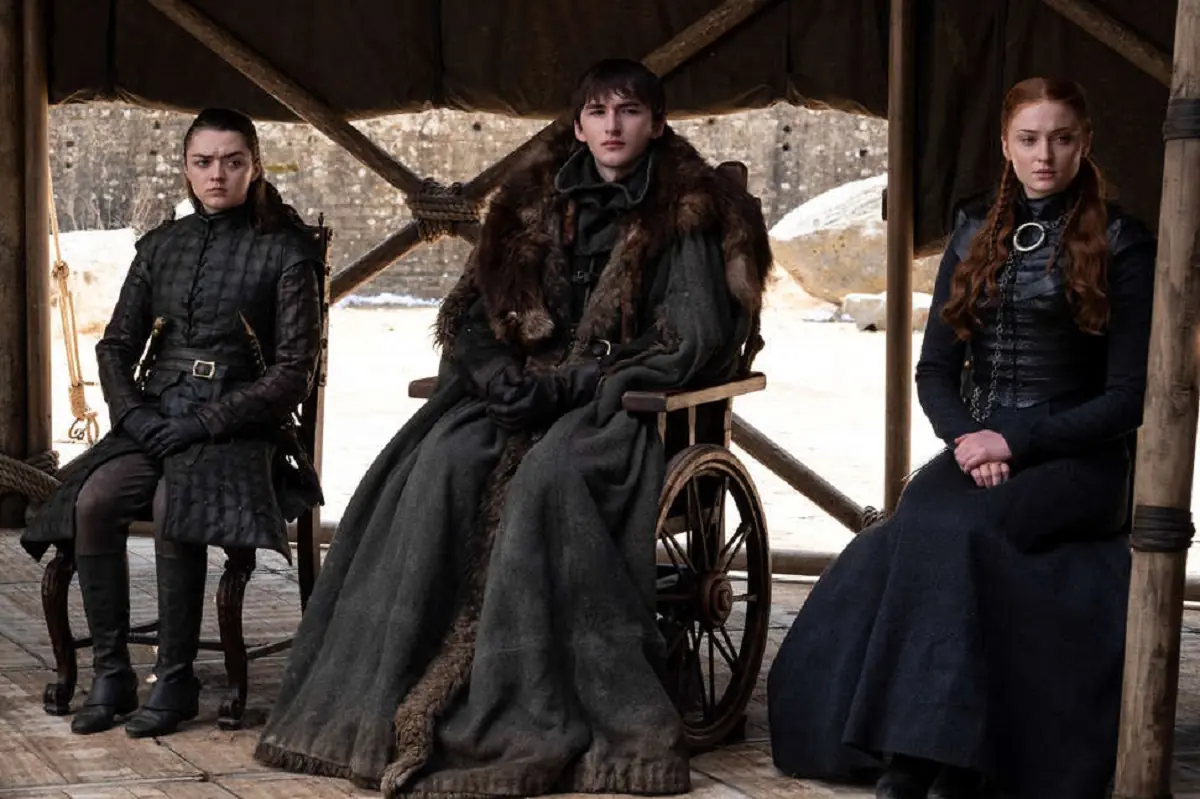
It’s enough to have the best story. Shackled for conspiring against the slain Daenerys, Tyrion convinces the proud and vain lords of Westeros to place a crippled, practically unknown boy with no influence or experience on the (burned) throne. A boy who can’t father an heir—good luck in the future. I’m already looking forward to the Game of Thrones sequel about the next inevitable war for power after Bran’s death. If the Three-Eyed Raven could do something more than voyeuristically spy on people during their most intimate moments, then a sorcerer-king might actually be a good idea. But the creators never showed Bran using his powers for anything truly significant. What’s more, the highly separatist Dorne and Iron Islands accept the North’s secession from the rest of the kingdoms without batting an eye. Tyrion himself—so incompetent for at least three seasons that, by the previously characteristic realism of GoT, he should have been dead long ago—suddenly forgets that Jon is a Targaryen and the rightful heir to the throne. This despite the fact that just one episode ago, he was discussing with Varys the idea of making Jon king instead of Daenerys. Did the letters Varys sent about Jon’s lineage before his death not reach anyone? Sansa, Arya—they suddenly forget too?

And why did Tyrion get away with persuading Jon to kill Daenerys? Snow is sent to the (now useless) Wall, while Lannister becomes Hand of the King. Tyrion manipulated Jon, who returned to the Night’s Watch and to what he does best—being sad. Would anyone really have objected to pardoning the man who killed a mass-murdering, self-proclaimed queen? The only person who cared about punishing Jon was Grey Worm. But the Unsullied sailed off to Naath, and the Dothraki suddenly remembered that they technically died during the Battle of Winterfell and politely disappeared from the screen. Seriously, neither Sansa nor Tyrion would use their influence to pardon Jon after all of Daenerys’s crazed, invading loyalists had vanished from Westeros?
Of course, none of these absurdities really matter to me—I love this show. Despite all its flaws, Game of Thrones remains one of the most important TV series of the 21st century and a true pop culture phenomenon. What other irrational, illogical, and nonsensical moments did you notice in Game of Thrones? Share your thoughts in the comments!


